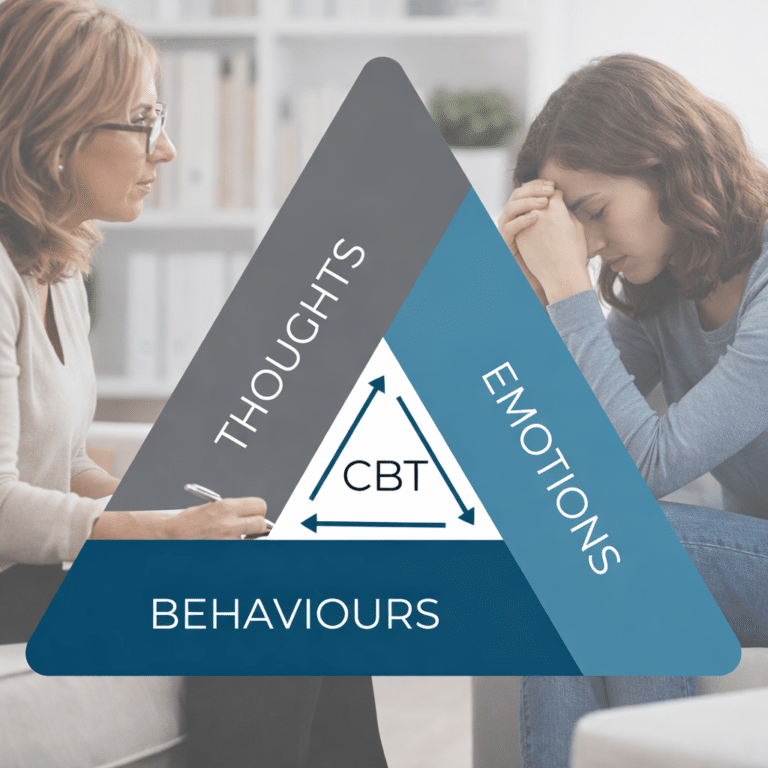
Substance use disorders (SUDs) are more common than many realize, affecting millions of lives each year. In 2021 alone, 46.3 million people aged 12 or older in the United States had a substance use disorder. These disorders involve a wide range of substances, including alcohol, prescription medications, and illegal drugs. But what exactly defines a substance use disorder, and how does it differ from addiction?
What’s the Difference Between Addiction and Substance Use Disorder?
It’s important to understand the difference between the terms addiction and substance use disorder (SUD). Addiction is a severe and chronic condition characterized by compulsive drug-seeking behavior, where someone continues using the substance despite negative consequences. It typically involves both physical and psychological dependence. SUD, on the other hand, is a broader diagnosis that encompasses varying degrees and the spectrum of substance misuse, from mild to severe. While addiction is on the severe end of the spectrum of SUDs, not all SUDs develop into addiction.

Common Types of Substance Use Disorders
- Alcohol Use Disorder (AUD): The most common substance use disorder in the U.S. is alcohol use disorder (AUD). In fact, around 29.5 million Americans aged 12 or older had AUD in 2021, according to the National Institute on Alcohol Abuse and Alcoholism (NIAAA). AUD is diagnosed when someone is unable to control their alcohol consumption despite its negative effects on their health, relationships, and responsibilities. Prolonged misuse of alcohol can lead to severe health issues like liver disease, cognitive decline, heart problems, and an increased risk of cancer.
- Opioid Use Disorder (OUD): Opioid use disorder (OUD) is another major concern, especially with the ongoing opioid crisis. In 2021, 8.7 million Americans aged 12 or older misused opioids, with 2.5 million people specifically diagnosed with OUD. This disorder can involve the misuse of prescription opioids like oxycodone, synthetic opioids like fentanyl, or heroin. Opioid misuse often leads to tolerance, dependence, and, tragically, overdose. In 2021, there were more than 100,000 drug overdose deaths in the U.S., many linked to opioids.
- Stimulant Use Disorder: Stimulants, such as cocaine, methamphetamine, and prescription ADHD medications like Adderall, can also be present in substance use disorders. In 2021, approximately 1.4 million people aged 12 or older had a stimulant use disorder related to cocaine, per the National Institute on Drug Abuse (NIDA). Stimulants increase dopamine levels in the brain, which can lead to feelings of euphoria. However, chronic misuse can cause serious health issues, including heart problems, aggression, and paranoia.
What is the Most Common Substance Use Disorder?
Alcohol use disorder (AUD) is the most common SUD in the U.S. Alcohol is readily available and socially accepted, making it easy for misuse to go unnoticed. According to the NIAAA, about 85.6% of adults in the U.S. have consumed alcohol at some point, and approximately 5.3% of adults meet the criteria for AUD each year.
What Causes Substance Use Disorders?
Substance use disorders develop from a variety of factors, including:

- Genetics: A family history of addiction can increase the likelihood of developing an SUD.
- Environment: Stress, trauma, and environments where substance use is normalized can contribute to misuse.
- Mental Health: Individuals with mental health disorders like anxiety or depression are more likely to turn to substances as a way to cope.
The effects of substance abuse reach beyond just the person using. SUDs can lead to strained relationships, financial struggles, and legal issues, further perpetuating the cycle of misuse.
Final Thoughts
Substance use disorders, whether related to alcohol, opioids, stimulants, or other substances, are widespread and have far-reaching consequences. But recovery is possible with the right treatment and support systems in place. Understanding the causes, recognizing the signs, and seeking help early can make all the difference. Resources like SAMHSA or NIDA can offer more guidance on SUD treatment and recovery options.
Responsibly edited by AI
Other Blog Posts in
Animo Sano Psychiatry is open for patients in North Carolina, Georgia and Tennessee. If you’d like to schedule an appointment, please contact us.
Get Access to Behavioral Health Care
Let’s take your first step towards. Press the button to get started. We’ll be back to you as soon as possible.ecovery, together.




